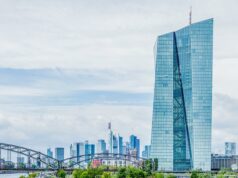He wants to shape it according to his ideas. But while Recep Tayyip Erdogan has succeeded in accumulating more and more power, he is making far less progress in remodeling society.
He would educate a „pious generation,“ Erdogan promised the followers of his conservative-Muslim AK party. But in the almost 16 years of his term as President and Prime Minister, religiousness in Turkey has declined and not increased. At any rate, this is a study that is causing quite a sensation in Turkey.
The polling institute Konda interviewed 5793 Turks in 36 provinces of the country, in villages as well as in big cities. According to them, the number of citizens who call themselves „religious“ has dropped from 54 to 51 percent over the past ten years, with just one in ten Turks viewing themselves as „deeply religious.“ Two out of three Turks fast on Ramadan, in 2008 it was still 77 percent. The number of atheists, however, has tripled.
Religion can not be prescribed
For Erdogan, the result is likely to be a nuisance: his government has spent a lot of money to win especially young people for a Muslim conservative lifestyle. Only last year, the Ministry of Education increased the budget for religious education by 68 percent to 1.3 billion euros. Under Erdogan, the number of religious schools increased tenfold from 450 to 4,500.
„Society does not become more religious just because the state wants it,“ says sociologist Volkan Ertit. There are factors that affect society more than Erdogan’s policies: globalization, urbanization, digitization.
Turkey has undergone an internal migration in recent decades like no other country. Half a century ago, three out of four Turks lived in the countryside. Today it is only seven percent. The population of Istanbul alone has increased fivefold since 1950 to at least 15 million.
Urbanization contributes to cultural change: people give up their lifestyles, traditions lose their importance. For the boys in the cities, Islamic rules play a lesser role than for their parents.
Social networks play an enormously important role
Gender roles are also changing: fewer and fewer Turks find that women need her husband’s permission to work. Young men and women want to decide for themselves, with whom they live together, instead of let themselves be coupled by their families. Parents are more likely to accept daughters-in-law or sons-in-law, even if they have a different belief or a different origin.
The government has largely controlled the traditional media. Many Turks are therefore looking for alternative ways to inform themselves. 72% of Turks use social media – more than in almost any other country.
Erdogan defines Turkey’s image abroad through his authoritarian, patriarchal demeanor. But under him grows a generation that is liberal, modern, globally networked.



